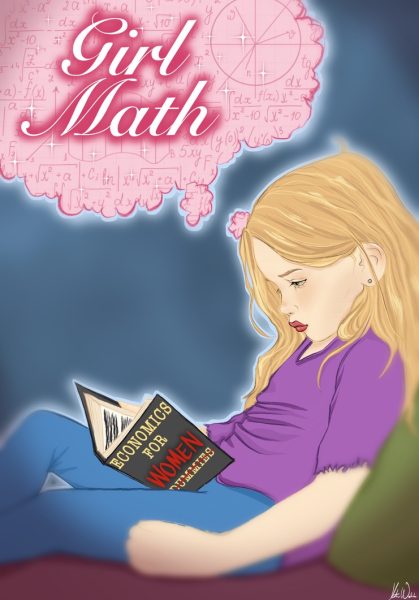Height Hardly Hardship in Netflix Rom-Com
October 1, 2019
“You think your life is hard? Try being a high school junior wearing size 13 Nikes. Men’s size 13 Nikes. Beat that.”
While Netflix’s teen rom-com, Tall Girl, is the company’s latest attempt to spread messages of acceptance, quotes like this and its utter lack of self-awareness are a step in the wrong direction.
The film follows a 6’1″ high school girl named Jodi as she grapples with her oversized stature and its impact on her love life.
While the goal of the movie is to encourage self-acceptance and body positivity, the film’s depiction of a tall, wealthy, white teen girl leading a life ravaged by discrimination is simply insensitive to issues of racism and prejudice that frequently occur in high schools everywhere, including the halls of Campolindo.
As recently as a few months ago, an instance of racism was reported on campus and although administration took necessary measures to prevent it from recurring, the root of this problem is what students are exposed to in the media. If companies like Netflix don’t see discrimination as a serious issue, then students won’t either.
Films that focus on actual minority groups in society like Get Out (which sheds light on racism) or Love, Simon (which portrays a closeted teen’s coming out story) have not only faced exponentially higher rates of success compared to Tall Girl but also spread awareness about the discrimination that is very much alive in America today.
Netflix needs to realize that by continually making movies like Tall Girl, they downplay the strife that minorities face.
The new film is also an example of Netflix reversing its strides towards sensitivity for all audiences. In 2018, Netflix released To All the Boys I’ve Loved Before, which featured Netflix’s 1st ever Asian American in the lead of a teenage romance movie. Not only was this film extremely successful, but it was also empowering for many Asian Americans as they finally were presented with a character with whom they could relate and have as a role model.
For Netflix to feel the need to empower white, privileged teens in its latest high school flick is absurd.
The flaw of the Tall Girl movie is not that the main character is white; it’s that the film tries to get audiences to sympathize with a majority group.
To think that being taller than average is the ultimate disadvantage and to portray upper middle class white people as having it harder than anyone else in America is tone-deaf.
Claiming that tall people are oppressed minorities is laughable. Over 2.3 million women in the United States are estimated to be over 6 feet tall, according to CS Monitor, despite the picture Tall Girl‘s producers attempt to paint by portraying the main character as marginalized by her stature.
Rather than shedding light on people living in horrible conditions in the U.S. immigration detention centers or the lack of gun regulation that is causing students to fear for their lives everyday at school, Netflix has chosen to dedicate an entire movie to the fact that a teenage girl is a few inches taller than her peers.
Occasionally hearing the comment “How is the weather up there?” is not the same as being confronted by racial slurs or being tormented for expressing one’s sexual identity.
Although Tall Girl may just be a movie, it embodies the flaws in today’s society and sends the wrong message to its teen audience.




